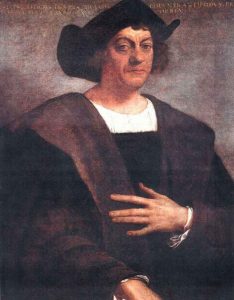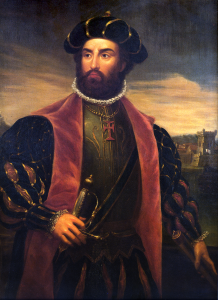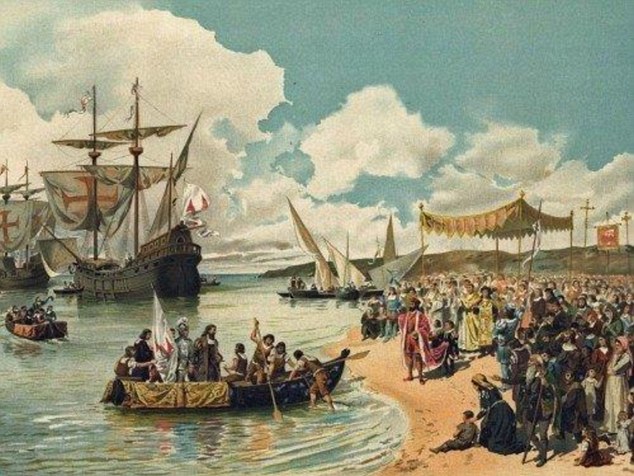During the fifteenth and sixteenth centuries, exploring was the thing to do. Europe was just now discovering that there were lands beyond their small stretch of world and ocean. Kings heard tell of cities of gold, and of new trade routes that might be possible and cut trade time in half, if they were discovered, so they sent out explorers all over the world. The only trouble was, most of these explorers set out looking for one thing, got totally lost, and then ended up finding something completely different. For better or for worse, their discoveries altered the course of human history.
Christopher Columbus

Pretty much everyone knows the story of Christopher Columbus. For years and years, Europe was trading with Asia by sending ships the long way ’round Africa. It was a dangerous passage, and took months and months. Christopher Columbus was convinced there had to be a better way. A better way, in fact, by sailing west instead of east. Eventually, he was able to convince King Ferdinand and Queen Isabella of Spain to fund his venture. They hoped that he’d return with gold.
Columbus sailed for India in AD 1492 with three ships. It took them six months to first sight land. On October 12, white cliffs could be seen from the decks of the ships. They landed on the island, stuck a flag in the sand, and claimed it for Spain. They thought it was a little island just off the coast of Japan. They couldn’t be more wrong. Columbus hadn’t discovered a way to Asia by sailing west at all. He hadn’t even discovered the landmass of North America. Columbus had only discovered Cuba. When he discovered there was no gold on the island, he set sail again, and the ships landed on another island they thought must be part of Japan. But no, it was Haiti. He kept on sailing, hoping to find gold, and ended up losing one of his ships. Columbus gave up and set sail for Spain.
Columbus took two more voyages during his life. He never did reach Asia, even though he was convinced he had. At the end of his life, he died bedridden, never knowing that he’d accidentally stumbled across what would later be called “The West Indies”.
Vasco de Gama & Bartolomeau Dias

Columbus wasn’t the only explorer to try and reach India. The Portuguese explorer Vasco de Gama sailed from Lisbon in 1497 in an attempt to open a sea route to India by sailing southwest. So he, and another explorer named Bartolomeau Dias sailed with one of the largest, most organized and well-equipped fleets that Portugal had to offer at the time. They had no idea that, as they sailed southwest, they came within 600 miles of the South American continent.
They got super lost, sailed around Cape of Good Hope, and reached what is now Mozambique in 1497. They were quite surprised to find a society at the seaport of Mombasa that was more advanced than their own. The people on this coast of Africa were shrewd merchants, and could use a compass, read a quadrant, and read navigational charts. They were dressed in silks and linens trimmed with gold.
The Sultan was not at all impressed with the Portuguese explorers. But, when they sailed on to a port just north of Mombasa, they were given a warm welcome. They were able to hire a pilot to guide them the rest of the way to India and made the trip in just 23 days.

They returned to Portugal later that year and opened up trade with India. The king was so pleased with this that he put together an even more ambitious fleet to continue exploring the passage to India. Bartolomeau Dias was chosen to lead it. They set sail on March 19, 1500, and attempted to follow Vasco de Gama’s route, but a storm forced them off course. They ended up landing in what is now southwestern Brazil.
They had no idea how big that discovery would be in the future. They claimed the land for Portugal and thought very little of it, and then found their course again and set sail for India. They reached it later that year, loaded up their ships with spices and returned to Lisbon.
It’s amazing what you can discover when you get just a little bit lost. You may be surprised to find that most explorers who found anything of worth were the ones that found it accidentally. I’ll leave it to you to decide whether or not the explorers or blind luck ought to be credited with these historic finds.